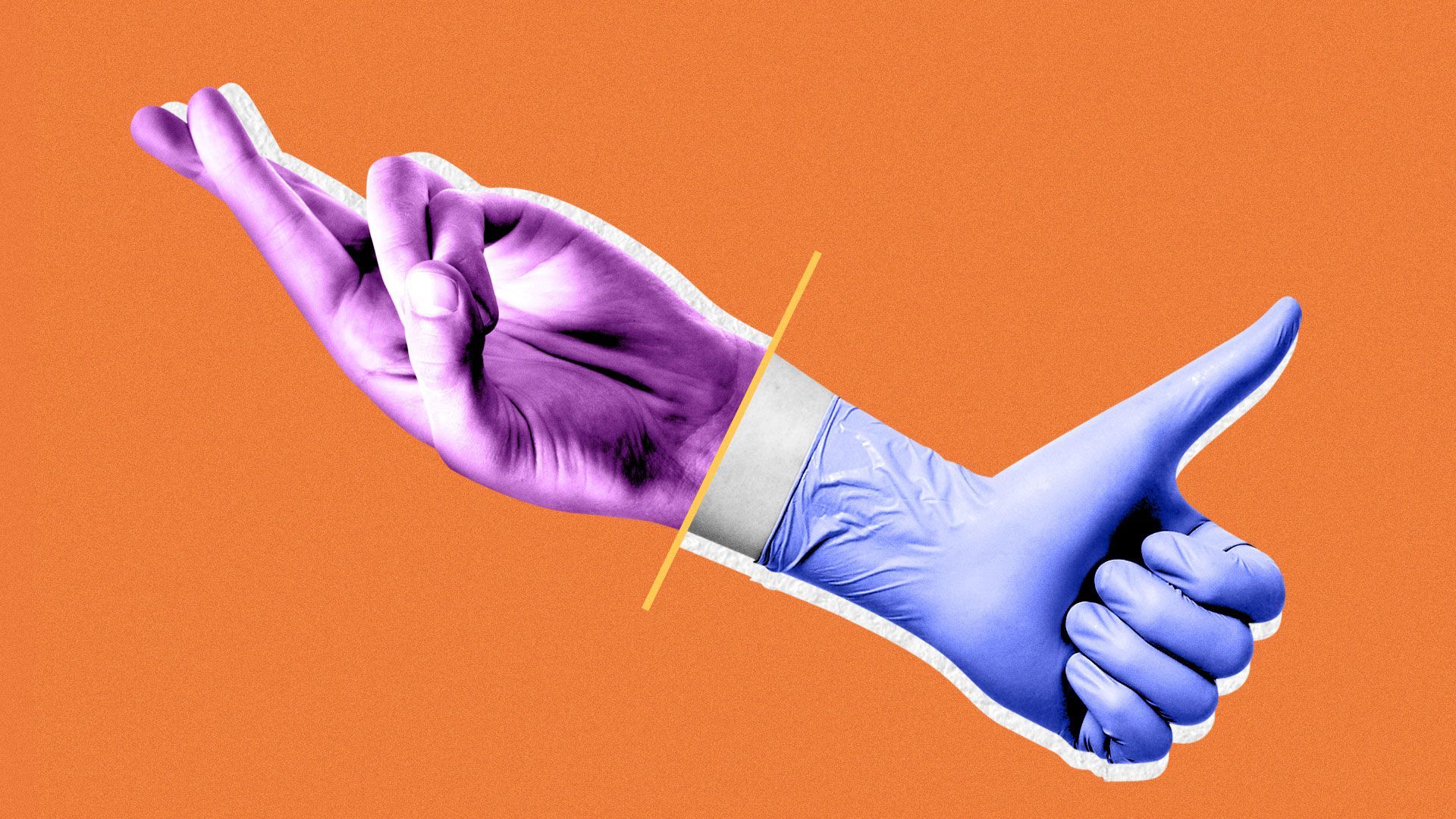Sep 23, 2020 - Health
Supply shortages continue to plague COVID-19 testing
Add Axios as your preferred source to
see more of our stories on Google.

Illustration: Eniola Odetunde/Axios
Add Axios as your preferred source to
see more of our stories on Google.

Illustration: Eniola Odetunde/Axios